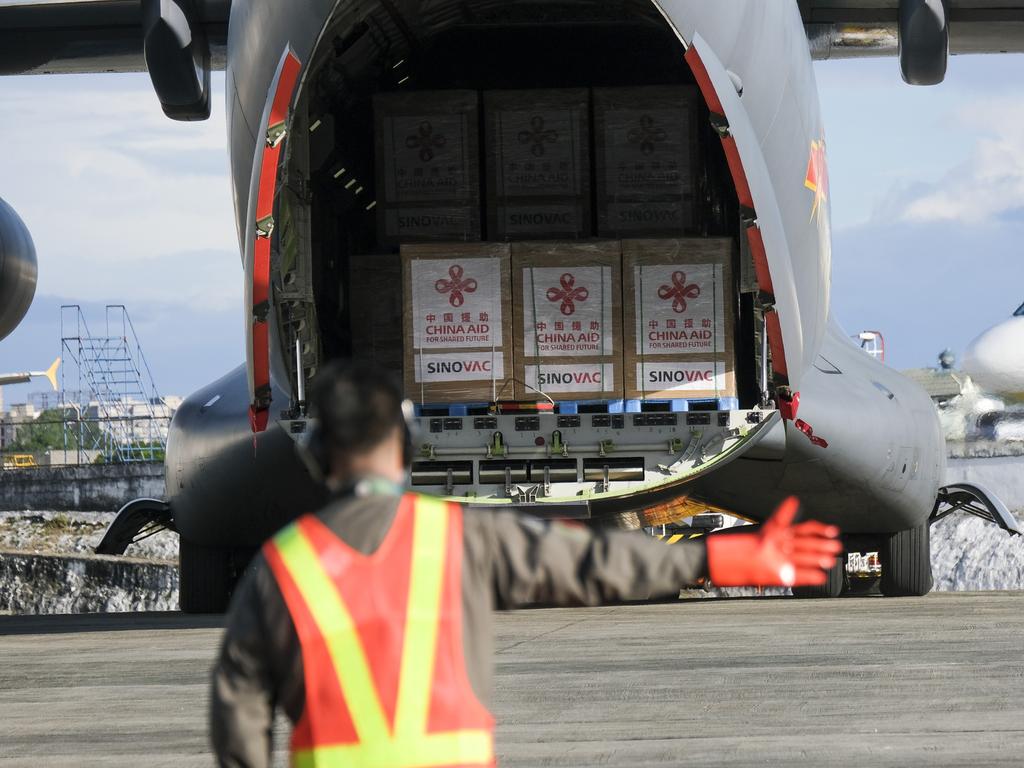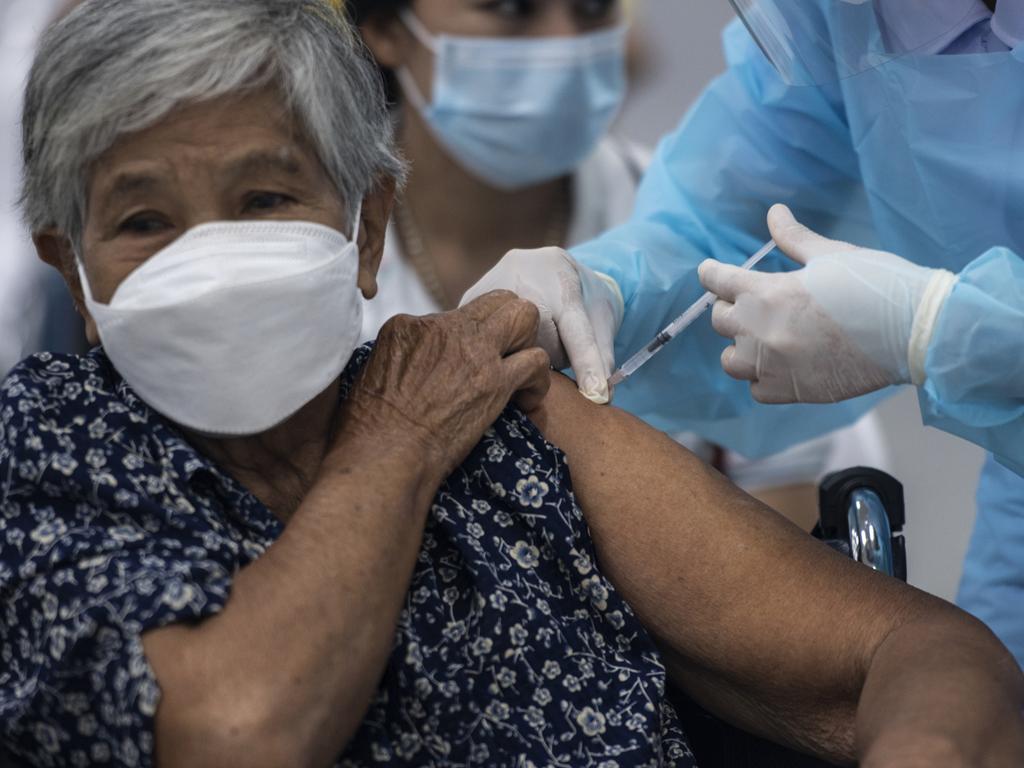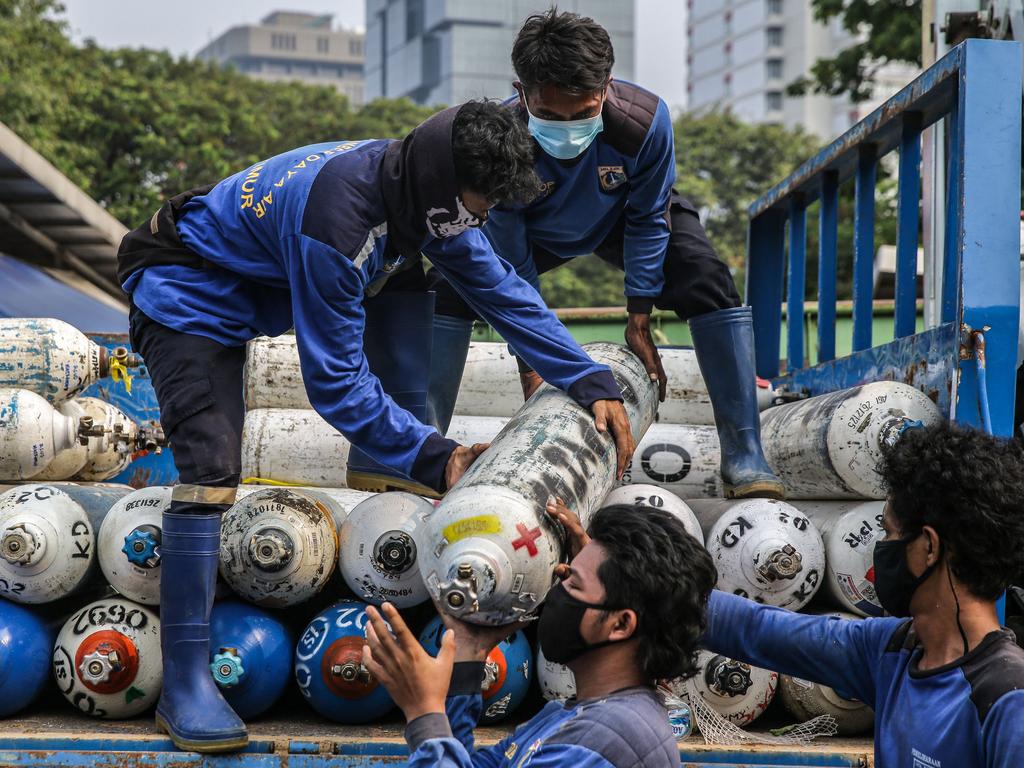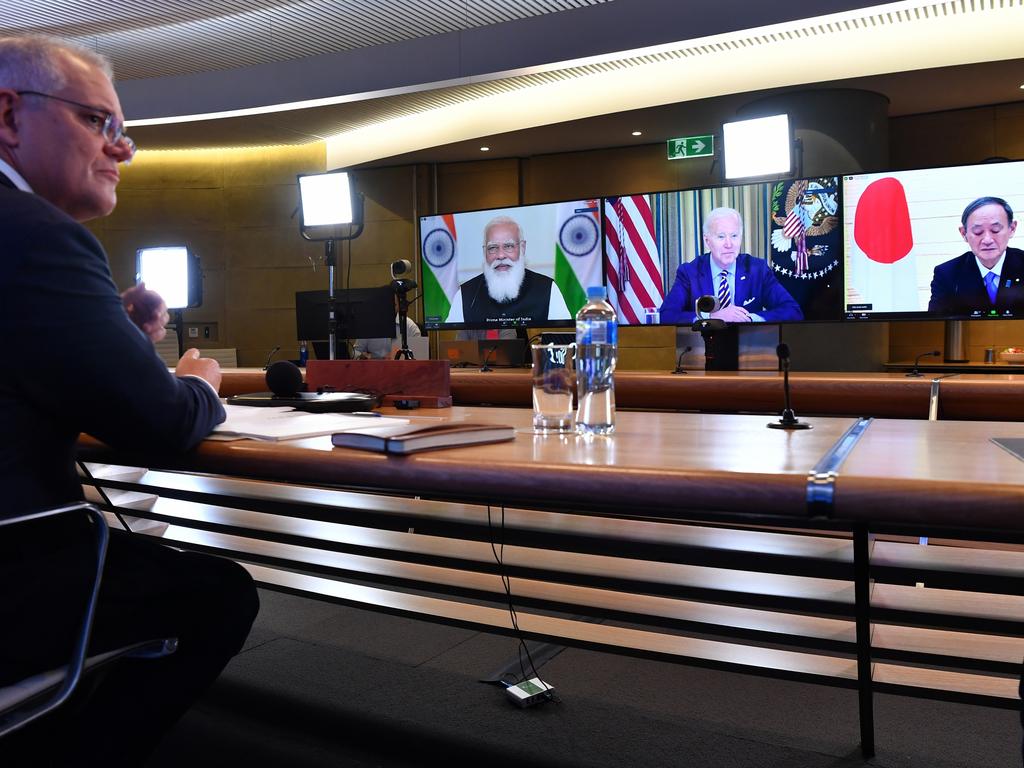New warning over China’s ‘vaccine diplomacy’
China has given their Covid vaccine to millions of people from many countries and critics say they come with strings attached.
The Chinese Communist Party “does not have an altruistic bone in its body” and is using so-called vaccine diplomacy for coercive ends, a leading Australian critic of Beijing has claimed.
Research from Duke Global Health Innovation Centre in the US shows the vast sweep of China’s vaccine donations, with millions of free jabs flooding South East Asia, the Middle East, Africa, South America and even some parts of Europe.
China has exported 165 million doses of Sinopharm and 122 million jabs of Sinovax, eclipsing the 66 million doses of Oxford AstraZeneca that have been shipped to date, the Duke research shows.
But Professor Clive Hamilton said China’s vaccine diplomacy “can quickly become vaccine coercion”.
“Paraguay found [this out] earlier this year when Beijing said it would supply vaccines for Paraguay to protect its citizens only if it severed diplomatic relations with Taiwan. The message seemed to be ‘Recognise China or we’ll let your people die,’” Prof Hamilton said.
“The Chinese Communist Party does not have an altruistic bone in its body.”

Prof Hamilton said Sinovac’s lower efficacy rates were “an embarrassment for Beijing” and some countries that had been reliant on Chinese vaccines were now switching to AstraZeneca to boost their protection.
Most developing nations “will choose non-Chinese vaccines as soon as they are available,” Prof Hamilton said.
Studies have shown varying levels of efficacy for the main Chinese vaccines, Sinovac and Sinopharm. In Brazil the efficacy for preventing symptomatic infection was just 51 per cent; in Turkey it was 84 per cent.

Melbourne University epidemiologist Professor Fiona Russell said while the studies showed lower levels of efficacy for the Chinese vaccines, “there are limitations on any vaccine and right now we need everything”.
“It’s important they they’re not discarded as useless,” she said. “The [Chinese] vaccines are highly effective against severe outcomes. They may not be as good for preventing infection, but really the primary outcome (now) is to stop people from dying and ending up in hospital.”
Asked whether the widespread use of the Chinese vaccines in South East Asia would lead to a longer pandemic in our region, Prof Russell said: “Possibly. We don’t know yet.”


The recent outbreaks in Indonesia and Thailand, with daily death tolls soaring above 1000, were largely attributable to those countries’ low overall vaccination rates rather than their choice of vaccines, she said.
Some nations were compensating for the lower efficacy of the Chinese vaccines by opting for a third booster shot, while Thailand was using Sinovax for its first doses and AstraZeneca for its second doses, Prof Russell said.
“A third shot is not the most efficient way of using vaccines in a global shortage,” she said. It’s expensive to find people three times for a shot … and logistically very difficult.”
More countries would likely turn to vaccines such as Pfizer and AstraZeneca in 2022, Prof Russell said, but China was also “working on new and improved vaccines, like all countries”.


Professor James Laurenceson from the Australian China Relations Institute said despite the lower efficacy of the Chinese jabs, Beijing may have already had a vaccine diplomacy win by getting them out to the world quickly.
“It won’t be lost on say, Indonesia, that the US put all of its priority on getting its own population vaccinated, whereas at the same time China was rolling out the vaccine domestically it was also already exporting to other countries as well,” he said.
“Washington might put the view that [the lower efficacy of the Chinese vaccines] is going to hurt China’s reputation, and plainly China would love it if their vaccines were the most effective, but that’s not the real choice these countries that are taking the Chinese vaccines face. Their real choice is China’s vaccines or nothing, at least up until now,” Prof Laurenceson said.
While China’s donations of vaccines included an “implicit influence-building exercise,” every country that donated vaccines “would have some strings attached, even if they’re only informal,” he said.

Concerns about the effects of China’s vaccine diplomacy recently prompted the Quad partners to announce their own vaccine partnership.
A spokesperson from the US State Department said the initiative would “ensure the availability of safe and effective vaccines in the Indo-Pacific region and beyond”.
“The Quad Vaccine Partnership between the United States, India, Japan, and Australia is committed to expanding local production for at least 1 billion safe and effective doses of COVID-19 vaccines in 2021 and 2022,” the State Department spokesperson said.
More Coverage
Originally published as New warning over China’s ‘vaccine diplomacy’




